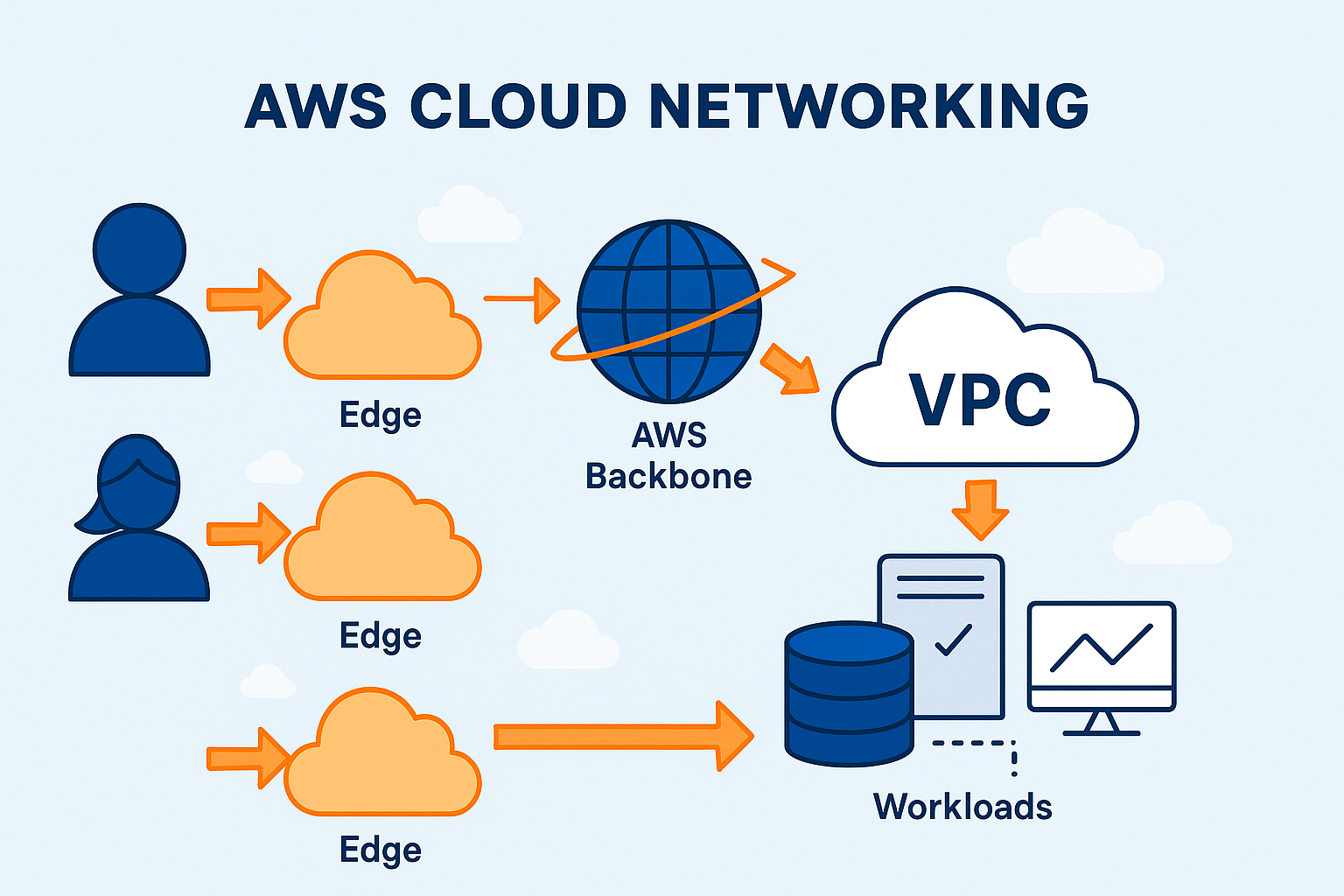Networking is the foundation of every modern cloud architecture. With Amazon Web Services, organizations can leverage AWS Cloud Network Automation to simplify network configuration, improve efficiency, and ensure consistent performance across environments. AWS networking services are designed to securely connect applications, data, and users across regions, data centers, and edge locations. In addition, businesses can implement Edge AI Solutions with AWS to process data closer to the source, enabling faster insights and real-time decision-making. Whether supporting a small application or a global enterprise platform, AWS provides the tools to build reliable, scalable, and cost-optimized networks. 1. Virtual Private Cloud (VPC) Amazon Virtual Private Cloud (VPC) is the building block of AWS networking. It allows customers to create logically isolated networks within AWS, giving them full control over IP ranges, subnets, routing tables, and security boundaries. This flexibility ensures workloads remain protected while still being able to communicate as needed. 2. Hybrid Connectivity Many organizations operate in hybrid models combining existing on-premises systems with cloud workloads. AWS offers several ways to achieve secure connectivity: These services make it possible to extend traditional networks into the cloud without disruption. 3. Application Traffic Management High availability and performance depend on distributing traffic efficiently. AWS provides multiple services for this purpose: Together, these ensure that applications can serve global audiences without bottlenecks. 4. Content Delivery and Edge Networking For organizations delivering digital content websites, media, APIs, or IoT data edge networking is critical. These services ensure users experience fast and consistent application performance no matter where they are located. 5. Security and Compliance in Networking Security is deeply integrated into AWS networking. Key features include: AWS also maintains compliance with global standards (ISO, SOC, HIPAA, GDPR), helping organizations meet regulatory requirements. 6. Edge AI Solutions with AWS This allows you to explain how AWS brings AI/ML capabilities to the edge, mentioning SageMaker Edge Manager, IoT Greengrass, and Panorama, and tying it naturally to latency-sensitive applications and edge devices. 7. Monitoring and Observability Understanding what happens within the network is vital for troubleshooting, optimization, and governance. These tools give organizations the visibility they need to maintain smooth operations. 8. Scalability and Global Reach AWS networking is built on one of the world’s largest infrastructures, spanning multiple Availability Zones and Regions worldwide. Organizations can design: This flexibility enables companies to scale from startups to multinational enterprises without redesigning their core networking. AWS Cloud Networking is more than a collection of services it is the backbone that connects compute, storage, and applications into complete solutions. From isolated VPCs to global edge delivery, AWS provides the tools to build networks that are secure, reliable, and future-ready. By leveraging these services, organizations can support modern applications, enable hybrid operations, and deliver faster, safer, and more consistent user experiences across the globe.


